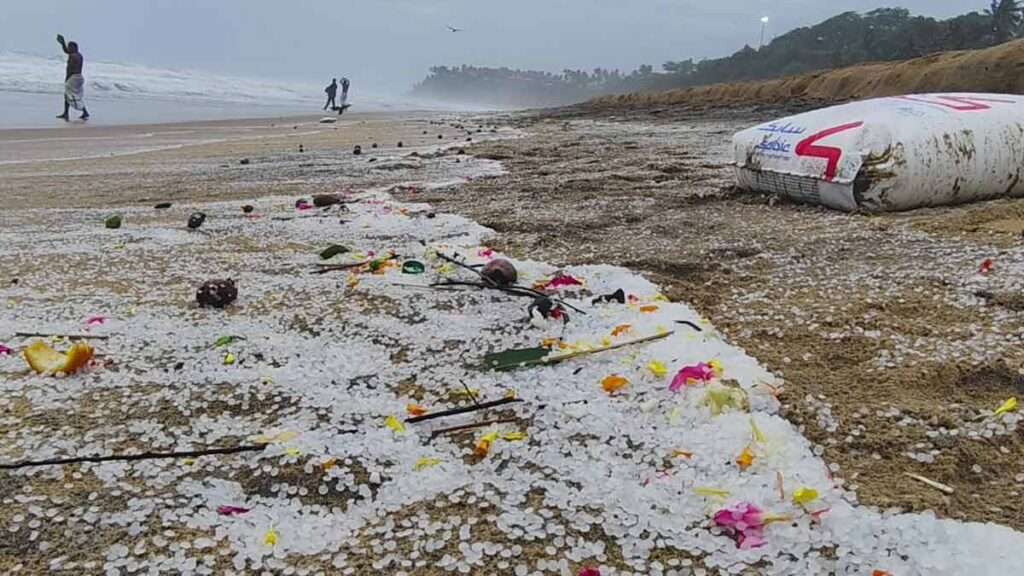Chennai, June 10 – Plastic nurdles from the sunken cargo vessel MSC ELSA 3 have begun washing ashore along the Tamil Nadu coastline, raising serious environmental and public health concerns. The Liberian-flagged ship sank off the coast of Kochi several weeks ago while carrying 640 containers, including 13 reported to contain hazardous materials.
Beaches in Chennai, including Marina and Covelong, have seen the arrival of large quantities of nurdles—small plastic pellets used as raw material in the production of plastic goods. Experts warn that these microplastics pose a severe threat to marine biodiversity and coastal livelihoods.
Marine ecologists have expressed alarm at the scale of the spill. “Nurdles are easily ingested by fish and marine birds, often leading to internal injuries or death,” said Dr. S. Anand, a marine scientist based in Chennai. “They also absorb toxic chemicals, which then enter the food chain, affecting both wildlife and humans.”
The Tamil Nadu Pollution Control Board (TNPCB) has launched an investigation into the incident and is coordinating with the Indian Coast Guard and the National Centre for Coastal Research (NCCR) to assess the ecological impact. Initial surveys indicate nurdles have spread across a 100-kilometre stretch of the Tamil Nadu coast.
Environmental groups, including the Coastal Resource Centre and Ocean Watch India, have mobilized to monitor the situation and assist in cleanup efforts. “This is a clear example of how poorly regulated cargo shipping can endanger entire ecosystems,” said activist Aarti Iyer. “We need accountability from shipping companies and immediate government action.”
The Ministry of Environment, Forest and Climate Change (MoEFCC) has been urged to step in and implement a coordinated response plan. Demands include a thorough cleanup operation, satellite tracking of the spill’s spread, and stricter maritime cargo regulations.
The MSC ELSA 3 sank amid rough weather conditions, and authorities initially focused on containing oil leakage. However, the release of plastic nurdles—a less visible but equally dangerous pollutant—has shifted the spotlight to the long-term environmental risks posed by maritime cargo disasters.
Fisherfolk in affected areas have reported decreased fish catches and fear contamination of marine resources. Many rely on daily fish sales for income and are concerned about the safety of the seafood entering markets.
As the nurdle spill continues to unfold, environmentalists warn of long-lasting consequences unless swift and decisive action is taken. The incident has sparked calls for greater transparency in maritime cargo management and stronger coastal pollution response strategies.



